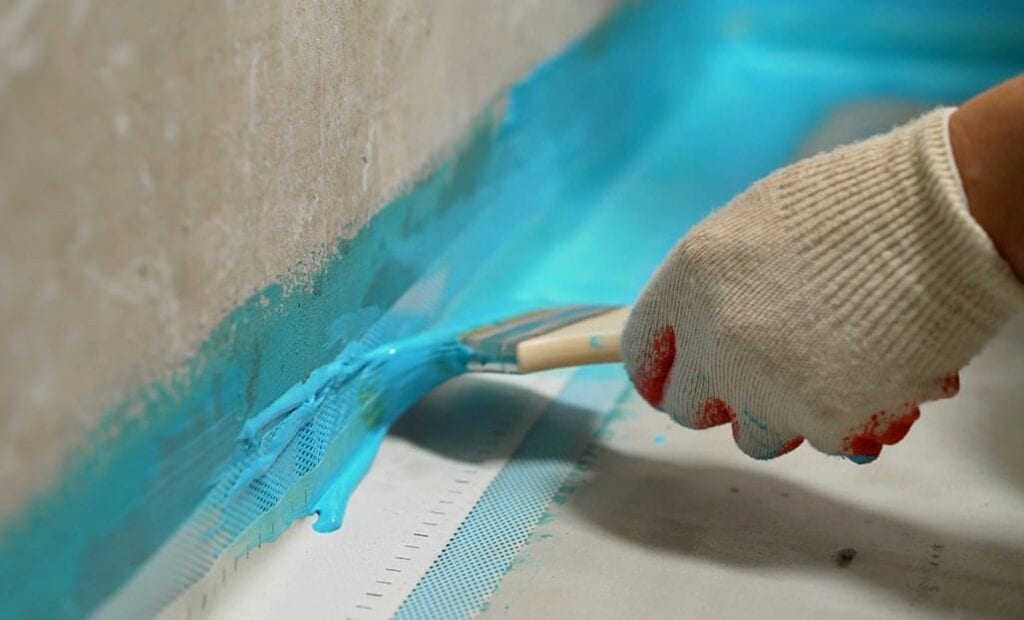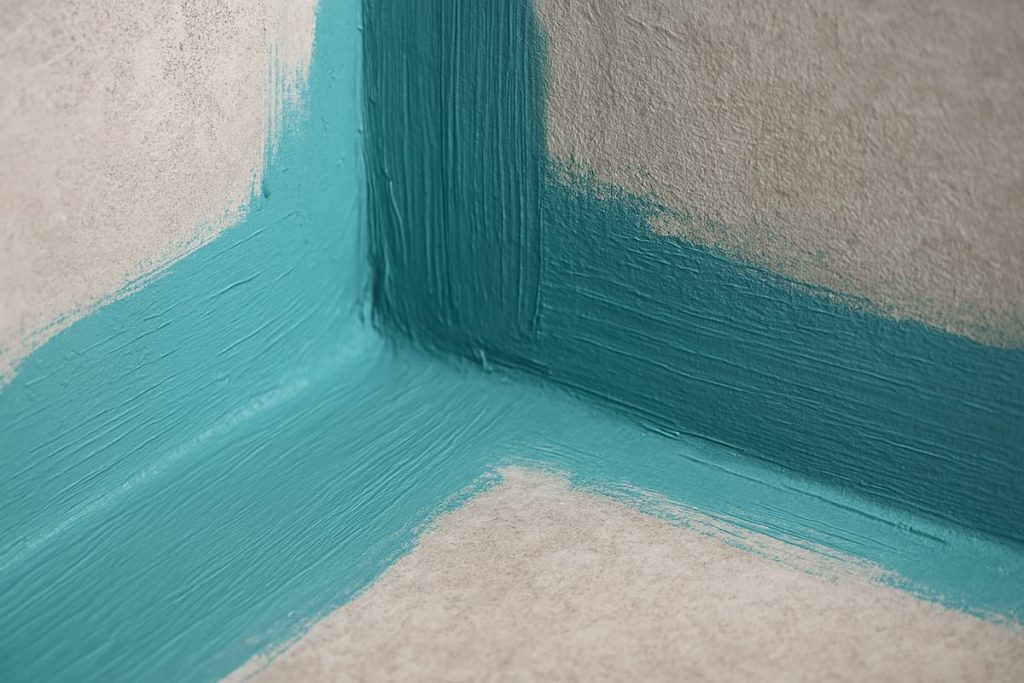How much does bathroom waterproofing cost?
Based on 8,921 projects posted through BuilderPlaza, the average cost for bathroom waterproofing in the US is around $4,845.65.
The most affordable job could be as simple as applying a waterproof membrane around a tub, which might cost about $1,823.44, while the most expensive project, such as a complete moisture barrier installation, can reach $15,788.54. Several factors affect this range, including bathroom size, scope of work, materials used, and the experience of the waterproofing contractor.
If you want a precise estimate for your own bathroom renovation, submit a quote request on BuilderPlaza. You typically receive 3–4 offers from local waterproofing contractors without any obligation, allowing you to compare prices and find the right fit.
On average, you’ll receive 3-4 quotes from contractors
Cost factors in detail
- Bathroom size: A smaller space can cost closer to $1,823.44, whereas larger bathrooms may push costs up toward $15,788.54.
- Scope of work: Waterproofing just the walls is more affordable than doing both walls and floors or installing a complete moisture barrier.
- Materials: High-quality membranes, sealants, and other supplies can increase total costs, but they often provide longer-lasting protection.
- Contractor experience: Seasoned waterproofing contractors for bathrooms may charge more, but their expertise can save money in the long run by reducing the risk of moisture damage.
What is waterproofing and moisture barrier installation?
Waterproofing is the protective layer in wet areas that keeps water from penetrating your walls, floors, and substructures. US building codes typically require a waterproof membrane in any room exposed to constant moisture, like bathrooms, showers, and sometimes laundry rooms. This membrane prevents structural damage by keeping both standing water and water vapor from seeping into areas where they don’t belong.

A separate but related concept is the moisture barrier (sometimes called a “vapor barrier”), which is designed to block less intense exposure to water or humidity. You often see these barriers in areas where moisture is occasional rather than constant.
Waterproofing is mandatory for consistently wet areas, but a moisture barrier can be enough for spaces like a half-bath or a kitchen backsplash, where water splashes can happen but the surfaces aren’t regularly soaked. Merely applying tile is not sufficient, since water can still slip through grout lines and into the underlying materials if a proper membrane isn’t used.
Is a moisture barrier the same as waterproofing?
Not exactly. A moisture barrier, or “vapor barrier,” is made to handle small amounts of humidity or minimal water exposure.
It’s commonly used under tiles or finishes in areas that get occasional splashes but aren’t constantly wet. An example might be around a kitchen sink or laundry area.
True waterproofing is far more robust. It’s the complete moisture barrier installation that protects bathrooms, showers, and wet rooms where water exposure is constant.
Waterproofing products often involve multiple layers of liquid or sheet membranes and reinforcing tapes around corners, drains, and pipes. These steps prevent ongoing dampness and water pressure from breaching the membrane.
Replacing or repairing bathroom waterproofing
Replacing or repairing bathroom waterproofing usually means doing a more extensive renovation. You have to remove old tiles or other finishes to access the existing waterproof membrane. Once these layers are gone, a new membrane can be installed properly. It’s very difficult—almost impossible—to salvage existing tiles if they must be pulled up to fix leaks or reapply waterproofing, so plan for some level of demolition if your membrane has failed.
Can you get a tax deduction or incentive for waterproofing?
In many parts of the US, there is no straightforward federal tax deduction specifically for bathroom waterproofing.
However, some homeowners find local incentives, home-improvement grants, or rebates if the work is classified under safety or long-term property value improvements.
Check with your city, county, or state to see if any programs might apply to your situation. If you’re unsure, speak with a tax professional or local building authority for guidance on potential financial benefits.
Who can do bathroom waterproofing work?
In the US, state and local regulations generally dictate who can perform waterproofing services.
Some areas require a licensed contractor for any major bathroom renovation or moisture barrier installation, especially when it involves altering plumbing or structural elements.
If you live in a condo or a home regulated by a homeowners association, you may also need approval or proof of proper licensing and insurance before starting.
While you can sometimes handle parts of the process yourself, many homeowners prefer to hire an experienced pro. A properly licensed or certified contractor helps ensure the work meets local building codes and passes any necessary inspections.
The easiest way to find licensed and insured contractors is to submit your project via BuilderPlaza:
On average, you’ll receive 3-4 quotes from contractors
Certifications and requirements
Waterproofing standards can vary from state to state. There’s no single national certification that every waterproofing professional must hold, but reputable contractors often carry licenses or training endorsements. If you’re not sure whether your contractor is qualified, ask for references, pictures of previous bathroom renovation projects, or any specialized certificates they might have.
Local building authorities may require a specific license for major bathroom work, so always check your city or county guidelines. Hiring someone who’s familiar with official requirements can save you hassle and costs in the long run.
Can I do waterproofing myself?
Yes, but only if you’re fully confident in your skills and knowledgeable about local building requirements. Waterproofing is a critical step in any bathroom renovation, since even a tiny leak can lead to rot, mold, or costly structural damage down the road. If you decide to do it yourself, make sure you:
- follow the product manufacturer’s guidelines precisely
- pay special attention to corners, pipe penetrations, and drains
- use reinforcing fabric or tape at joints and seams
- check with local authorities about permits or inspections if needed
Some homeowners do the demolition, preparation, or finishing work themselves, then hire a specialist to handle membrane application or final sealing. This hybrid approach may save money while ensuring a reliable waterproof barrier.
Steps for installing bathroom waterproofing

Wall waterproofing
- Prep the surface: Remove old materials and confirm the surface is dry, clean, and smooth.
- Prime: Apply a recommended primer so the waterproofing product bonds correctly.
- Reinforce corners and seams: Use a specialized tape or fabric to cover joints, corners, and transitions.
- Apply the waterproof membrane: Follow manufacturer instructions for either liquid or sheet membranes. Multiple coats or layers may be required.
- Drying: Allow sufficient curing time before proceeding to tiling or other finishes.
Floor waterproofing
- Prep the floor: Strip existing floor coverings and ensure the subfloor is stable, level, and completely dry.
- Prime: Apply a primer that’s compatible with your chosen membrane system.
- Reinforce edges and joints: Install reinforcing material around drain openings and where the floor meets the wall.
- Apply the waterproof membrane: Spread or adhere the product across the floor. Carefully seal the perimeter, around drains, and any fixtures.
- Drying: Let it fully dry or cure before adding tile, stone, or other finishes.
How to find reliable waterproofing contractors for bathrooms
A trusted professional ensures your investment is protected for years to come. One of the easiest ways to locate a qualified pro is to use an online contractor platform like BuilderPlaza. By posting your project details, you can receive multiple proposals from local contractors, helping you compare bathroom waterproofing cost guide estimates, timelines, and service offerings.
When evaluating contractors, consider their experience, portfolio, and customer reviews. Don’t be afraid to request references or ask specific questions about your project’s needs.
Pro Tips for a Successful Bathroom Waterproofing Project
“Surface prep is everything. A clean, level, and dry base gives your membrane the best chance to do its job properly.”
— Liam Carter, Waterproofing Specialist
“Don’t cut corners on materials. Quality membranes and sealants might cost more upfront, but they’ll save you from costly water damage down the line.”
— Natalie Byrne, Licensed Builder
“Be patient with drying times. Rushing the process can trap moisture and ruin the whole system before you even start tiling.”
— Ethan Wells, Bathroom Renovation Expert
“Always reinforce seams and corners with tape. These areas are prone to movement and the most common spots for leaks.”
— Sophie Ng, Certified Waterproofing Technician
“Pipes, drains, and fixtures need extra care. These penetrations are the weakest points in any waterproofing setup.”
— Mark Johansson, Residential Plumber
Hire a pro for complete moisture barrier installation
Working with a professional brings peace of mind. Experienced contractors know the best techniques, use durable materials, and follow local building codes. Many also offer warranties on labor, which can be a lifesaver if any issues pop up down the line.
If you’re ready to move forward, post your project on BuilderPlaza or another contractor marketplace. You’ll typically receive multiple bids, making it easier to find the right balance of price and expertise without any obligation.
Frequently asked questions about bathroom waterproofing
On average, the cost to waterproof a bathroom is about $4,845.65 according to BuilderPlaza data. Actual numbers vary based on bathroom size, job scope, materials, and the experience level of waterproofing contractors for bathrooms.
It generally takes a few days to a week. This includes prep, applying the membrane, and waiting for drying or curing times before installing tile or other finishes.
Yes. Proper bathroom waterproofing is essential to avoid mold, rot, and other serious water damage. Professionals have the training to do it right, often provide warranties, and can save you money on repairs in the long term.
Websites like BuilderPlaza help you source and compare multiple local contractors for bathroom waterproofing. Always check reviews, examples of past work, and proper licensing or insurance.
Focus on thorough cleaning and prep, use quality products, follow manufacturer guidelines, and make sure all seams, corners, drains, and pipe penetrations get extra reinforcement. Those are usually the first places leaks appear.
Ready to start your project? Let us find you trusted contractors in your area!
Free to use, no-commitment price estimate
